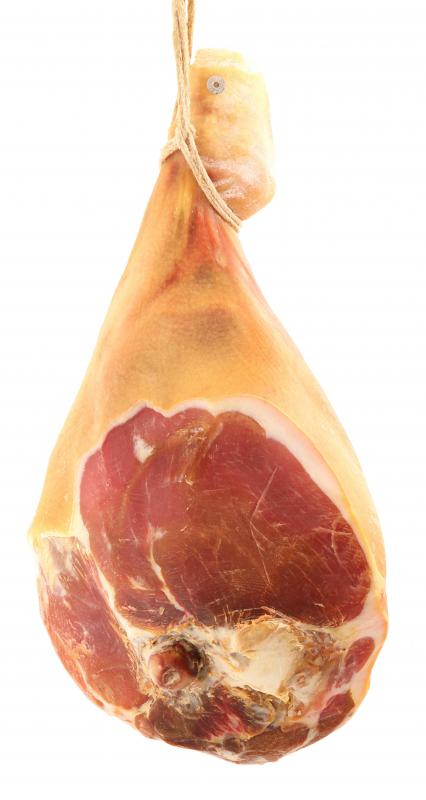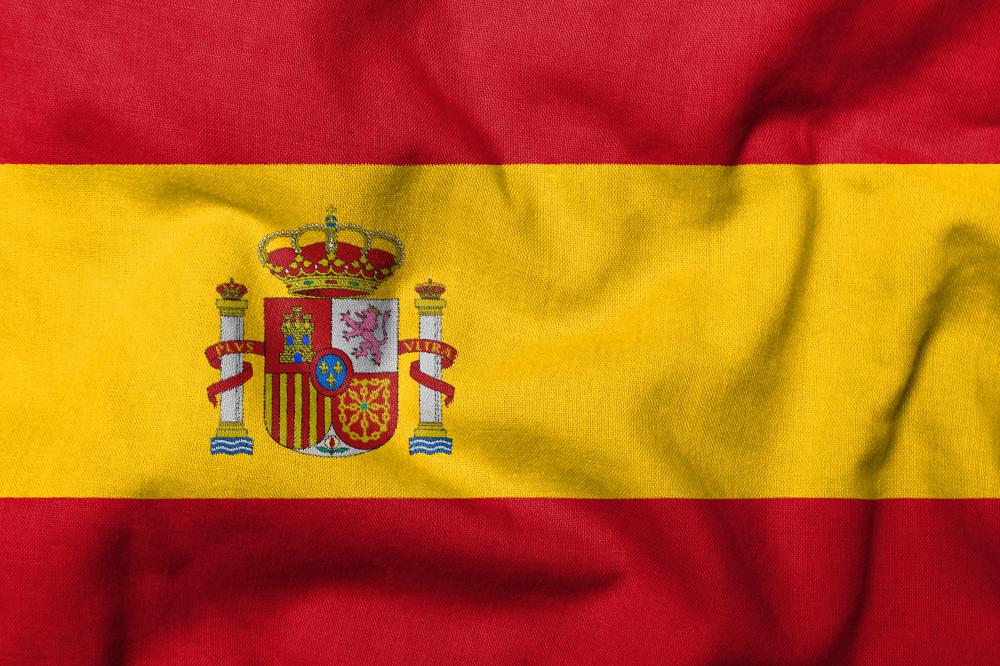At DelightedCooking, we're committed to delivering accurate, trustworthy information. Our expert-authored content is rigorously fact-checked and sourced from credible authorities. Discover how we uphold the highest standards in providing you with reliable knowledge.
What is Jamón Iberico?
People may be used to thinking of most forms of ham as relatively inexpensive. Quite the opposite is true when the subject of the Spanish cured ham, jamón iberico, is mentioned. This is one of the most expensive hams you can buy because of its rarity, the unique feeding properties of the pigs, the type of pigs used, and the lengthy curing process.
Most variants of jamón iberico come from the black Iberian pig, though there are some versions made with other pigs. These pigs are available in parts of Portugal too, but are mostly present in Southern Spain. In order to get the unique taste of jamón iberico the pigs are fed a diet consisting mostly of acorns, and sometimes almost solely of acorns, or are fed part acorn and part grain diets. The acorn diet is fatty, causing the pigs to develop deposits of oleic acid, which is actually monounsaturated. When the pigs are slaughtered the oleic acid is expressed in marbling throughout the meat, which adds rich flavor to the meat.

There are three types of jamón iberico, and they are determined in class based on the percentage of diet that consists of acorns. The more acorns pigs are fed, the greater the quality of the ham, although all three types are considered desirable. The pigs are also free range, which makes a great difference to many meat consumers. The three types in order of quality are jamón iberico de bellota, jamón iberico de recebo, and the last may simply be called jamón iberico or have the words de plenso added at the end.

All versions of the ham are cured, and the curing process takes a minimum of a year or may take as many as three years. Quality on all three types is considered extremely high. You can also expect to pay for quality. A full bellota may cost about $100 US Dollars (USD) per pound. Thus a 10-pound (4.54 kg) bone in ham would be about $1000 USD. The de plenso style is not that much less expensive, costing about $60 USD per pound.

Up until recent years, it was impossible to purchase this ham in the US. It could not be legally imported to the states. As of 2005, trade agreements with Spain make importation possible, though distribution is small. A similar ham is produced in Portugal, and is called presunto. It is very limited in availability outside of Portugal.
AS FEATURED ON:
AS FEATURED ON:













Discuss this Article
Post your comments